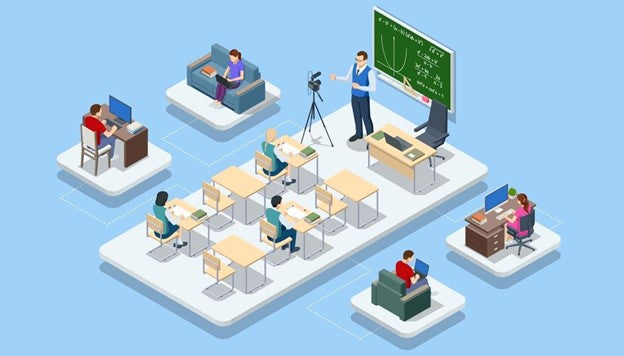
Personalised learning options in vocational education and training
SUKH SANDHUPersonalised learning options in vocational education and training
There is a lot of talk about "personalised learning" these days, but what does it actually mean?
Simply put, personalised learning is when students are given the opportunity to tailor their learning experience to suit their individual needs and preferences. This might involve choosing which subjects they want to study, or how they want to learn (e.g. through online resources, face-to-face teaching, or a combination of both).
There are many different ways to learn, and vocational education and training (VET) providers offer a range of personalised learning options to suit different needs. These options allow you to tailor your learning to suit your individual needs, interests and goals.
Some students prefer to learn in a traditional classroom, while others may choose more flexible online or distance learning options. Some students may need extra support to help them succeed, while others may benefit from accelerated learning programs.
VET providers can work with students to identify the best learning option based on their individual needs and preferences. This means that students can get the most out of their VET experience and are more likely to reach their full potential.
Some personalised learning options include:
- undertaking work experience or internships
- completing extra units or subjects
- studying online or via distance education
- participating in work-based learning programs
- doing an apprenticeship or traineeship.
There are many benefits of personalised learning, including:
Improved educational outcomes: A recent study found that personalised learning can have a significant impact on student achievement, with students in personalised learning classrooms outperforming those in traditional classrooms by as much as 12 months.
Greater engagement and motivation: When students are able to direct their own learning and follow their interests, they are more likely to be engaged and motivated. This can lead to improved attendance and decreased rates of behavioural problems.
increased flexibility: Personalised learning can take many different forms, from online learning to hands-on projects. This means that students can learn in a way that suits their individual needs and preferences.
Customised content: In a personalised learning environment, students have access to content that is specifically tailored to their interests and abilities. This means that they are more likely to understand and retain the information.
Increased collaboration: Personalised learning often takes place in small groups or one-to-one. This allows for increased collaboration between students and teachers, as well as between students themselves.
Enhanced creativity: When students are given the opportunity to explore their own interests and ideas, they are more likely to be creative and innovative in their thinking.
Improved social skills: The increased interaction that personalised learning provides can help students develop important social skills such as communication, teamwork and empathy.
Greater responsibility: As students take more control over their learning, they also develop a greater sense of responsibility. This can lead to improved behaviour and increased academic success.
Higher-order thinking skills: By its very nature, personalised learning requires students to think critically and solve problems. This helps them to develop important higher-order thinking skills such as analysis and synthesis.
Enhanced self-esteem: When students feel like they are in control of their learning and are making progress, it can boost their self-esteem and confidence.
Improved attitudes towards learning: Personalised learning can help students develop more positive attitudes towards education in general. This can lead to increased motivation and engagement in future learning experiences.
A deeper understanding of concepts: As students are able to explore concepts in more depth, they develop a greater understanding of them. This can lead to improved performance in assessments and exams.
Increased independence: As students learn how to take control of their own learning, they become more independent and self-reliant. This is an important skill that will be useful in future education and career pursuits.
Real-world applications: By its very nature, personalised learning is often more relevant to student's lives and experiences. This can help them see the value in what they are learning and how it can be applied to the real world.
Improved time management skills: As students plan and organise their own learning, they develop important time management skills. This is an important life skill that will be useful in future education and career pursuits.
Increased opportunity for feedback: In a personalised learning environment, students often have more opportunities to receive feedback on their work. This can help them to improve their performance and understanding of the material.
Greater ownership of learning: When students are in control of their own learning, they develop a greater sense of ownership over it. This can lead to increased motivation and engagement.
More engaged parents: Parents who are more engaged in their child's education are more likely to be supportive of personalised learning. This can lead to improved communication and collaboration between home and school.
Improved transition to tertiary education: Students who have experienced personalised learning are often better prepared for tertiary education. This is due to the increased autonomy and responsibility that they have developed during their time in a personalised learning environment.
Greater employability: Students who have experienced personalised learning often have an advantage when it comes to employment. This is due to the skills and attributes that they have developed during their time in a personalised learning environment.
Personalised learning options can help your students to get the most out of their VET studies, and make sure they are prepared for the workplace.
Personalised learning has been shown to be an effective way of increasing engagement and motivation in students, as well as improving academic outcomes.
RECENT POSTS





